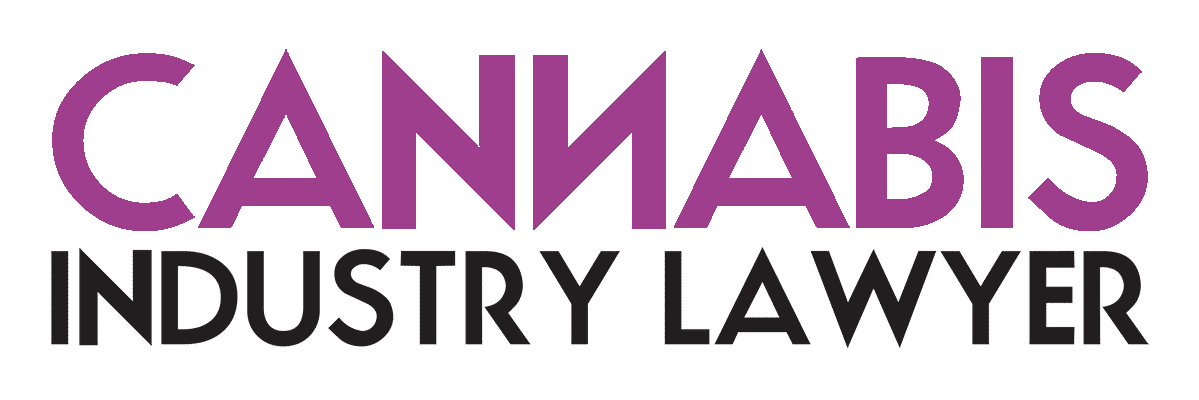Are you considering a rewarding and lucrative venture in the Maryland cannabis market? With opportunities in both medical and adult-use cannabis, obtaining a license in Maryland can be a game-changer for your business. In this expert guide on how to get a cannabis license in Maryland, we’ll walk you through the crucial steps to securing a cannabis license, staying compliant with regulations, and building a thriving cannabis business in the Old Line State.
Maryland Medical and Adult-Use Cannabis
In recent years, the Maryland cannabis landscape has evolved significantly, with both medical and adult-use cannabis becoming a vital part of the state’s economy. The Maryland Cannabis Administration (MCA) plays a pivotal role in regulating both medical and recreational cannabis products, ensuring compliance with state laws and guidelines.
As of July 1, 2023, adults aged 21 and older can legally purchase up to 1.5 ounces of cannabis and 12 grams of cannabis concentrates from a cannabis dispensary with licensed dispensaries. With the MCA intending to approve 300 dispensary licenses in Maryland, many entrepreneurs are eager to enter this booming market. To promote social equity, a portion of the adult-use dispensary licenses will be reserved for social equity applicants, as well as three new funds established to encourage health consciousness and social equity in the cannabis industry.
Medical Cannabis in Maryland
The Maryland Medical Cannabis Commission (MMCC) oversees the medical cannabis industry in the state, including the implementation of Maryland cannabis laws. Medical cannabis is available for patients with a qualifying medical condition, which include severe or chronic pain, severe nausea, and post-traumatic stress disorder, among others. To purchase medical cannabis in Maryland, individuals must be at least 21 years old, registered with the MMCC, and subject to background checks and drug screenings. Medical dispensaries play a crucial role in providing access to patients in need.
The fee structure for obtaining a medical cannabis license in Maryland varies depending on the type of license, with potential licenses and corresponding fees listed on the MMCC’s website. As the medical cannabis sector grows, it becomes paramount for budding entrepreneurs to comprehend the rules and prerequisites for license acquisition.
Types of Cannabis Licenses in Maryland
Maryland offers a variety of cannabis licenses, including:
The first round of new licenses is reserved for social equity applicants, ensuring that those who have been disproportionately impacted by previous cannabis laws have the opportunity to participate in this thriving industry.
To be eligible for a cannabis license in Maryland, applicants must meet certain criteria, such as being a resident of a disproportionately impacted area, having a cannabis-related conviction, or having a family member with a cannabis-related conviction. Knowledge and compliance with the state’s cannabis laws are fundamental in successfully obtaining a license and running a law-abiding cannabis enterprise.
The licensing process for Maryland cannabis businesses is comprehensive and requires applicants to submit various documents and plans, including a business plan, operational plan, and diversity plan. Keeping abreast of the latest legislative alterations and maintaining adherence to state regulations is instrumental in overcoming obstacles and seizing opportunities in the Maryland cannabis market.
Maryland Cannabis Licensing Requirements:
Verified Social Equity Applicant with Receipt, a robust business plan, and solid financial documentation, detailing the operation’s objectives and strategies, are foundational in procuring a Maryland cannabis license. A comprehensive business plan for Maryland dispensaries should encompass:
- Proof of Social Equity Verification Receipt
- The physical location of the Cannabis Business
- Solid Cannabis Business Plan
- Financial Plan
- Diversity and Inclusion Plans
- Environmental and/or Community Impact Plan
- Safety and Security Plan
Pre-Application Process:
Social Equity Verification Portal
On September 8, 2023, the MCA and its Office of Social Equity (OSE) launched the social equity verification portal, designed to facilitate the application process for social equity applicants. The portal enables applicants to verify their eligibility as a social equity applicant for cannabis business licenses, ensuring that those who meet the criteria have access to the licensing opportunities.
- Have lived in a disproportionately impacted area (DIA) for 5 of the 10 years prior to application submission. Zip Codes released by OSE.
- Attended a public school in a DIA for at least 5 years. List of Public Schools released by OSE.
- Have for at least two years attended a 4-year institution of higher education in the state where at least 40% of the individuals who attend said institution are eligible for a Pell Grant.
The Application Process for Maryland Cannabis Licenses
Are you an entrepreneur interested in starting a cannabis business? Look no further than Maryland, where adult-use and medical cannabis are legal. In this step-by-step guide, we will walk you through the requirements, application process, and regulations for obtaining a Maryland adult-use cannabis license.
Application Process
To apply for a Maryland adult-use cannabis growers license, you must submit an application form, pay the $5,000 application fee, and provide supporting documentation that proves you meet all the requirements. You will also need to attend an interview with a panel of experts who will assess your suitability for a license. After submitting your application, you will need to wait for the decision of the Maryland Cannabis Administration.
The regulations for cultivating and selling cannabis in Maryland are strict, so it is important to understand them before applying. If granted a license, you must comply with all regulations and pay taxes on your cannabis sales. Overall, getting a Maryland adult-use cannabis cultivation license can be lucrative but requires careful planning and preparation.
Submit an application form
To submit an application form for a Maryland adult-use cannabis license, you will need to create a thorough business plan that outlines your operation’s goals and strategies. Additionally, you must provide information about the owners and employees of the business, including their backgrounds and qualifications. You should also describe in detail the cultivation facility’s location, size, and security measures to ensure compliance with state regulations.
Pay the application fee
Before submitting your application for a Maryland cannabis license, it is important to pay the application fee. Make sure you have enough funds to cover this cost and that your payment method meets Maryland Cannabis Administration requirements. Before paying the fee, find out how much it is and ensure that you have all the necessary documentation in order to avoid delays in processing your application. Keep in mind that this step is crucial for moving forward with the application process, so be sure to complete it as soon as possible.
Submit supporting documentation
Submit Supporting Documentation
When applying for a Maryland adult-use cannabis license, it is important to ensure that you have all the necessary supporting documentation. This documentation will demonstrate that you meet the requirements and are financially stable enough to operate a cultivation facility. Here’s what you need:
- Obtain necessary government permits and licenses
- Proof of Eligibility (Verfieid Social Equity Receipt)
- Provide proof of financial stability and responsibility
- Include a lease agreement or property ownership documents for cultivation facility space
The interview process is an opportunity to provide more information about your plans for the business, but submitting complete supporting documentation can increase your chances of being approved. Be sure to carefully review the application requirements and gather all necessary documents before submitting your application.
Once you’re ready, submit your completed application form along with the required fee and supporting documentation. The Maryland Cannabis Administration will then review your application materials as part of their decision-making process.
Getting a Maryland adult-use cannabis cultivation license can be challenging but rewarding if done correctly. Remember that complying with regulations is crucial for success in this industry.
Regulations
Regulations for a Maryland adult-use cannabis cultivation license are strict and require compliance with a number of guidelines. These regulations cover the cultivation of cannabis plants, the sale of cannabis products, and the payment of taxes on sales. As such, it is essential to thoroughly understand all regulations before applying for a license to avoid any legal issues down the line. It’s important to note that failure to comply with these regulations can result in fines or even revocation of your license. Here’s everything you need to know about Maryland’s Cannabis Business License.
Taxes on Cannabis Sales
Understanding the tax rates imposed on adult-use cannabis sales in Maryland is crucial for any entrepreneur looking to start or operate a cannabis business. In addition, complying with state and local reporting requirements related to taxes on sales of marijuana products is essential. Exploring tax planning opportunities such as deductions or credits available for operating expenses can also help businesses reduce their tax burden. It’s important to stay informed about changes in taxation laws and regulations that may impact your business operations.
Timeline of License Application in Maryland
Here is the Maryland adult-use cannabis license application timeline:
- July 1, 2023: Adult-use cannabis becomes legal in Maryland.
- September 8, 2023 – November 7, 2023 – Social Equity Verification Period
- Fall 2023: The application process for the first round of licenses begins.
- January 1, 2024: First round of licenses are expected to be issued.
- Subsequent rounds of licenses: The Maryland Cannabis Administration plans to issue additional rounds of licenses in the future.
For more updates and information about the adult-use cannabis legalization FAQs in Maryland, visit their website. Click here!
Staying Compliant with Maryland Cannabis Regulations
Staying compliant with Maryland cannabis regulations is of utmost importance for operating a successful cannabis business in the state. Regulations related to cultivation, processing, and sales must be strictly adhered to, ensuring public safety and reducing the potential for misuse.
To achieve regulatory compliance, Maryland cannabis businesses must employ seed-to-sale tracking systems like Metrc, which allows dispensaries to accurately and effectively monitor inventory, sales, and transfers. Implementing dispensary technology solutions like Cova POS, which integrates seamlessly with Metrc, can further streamline operations and automate compliance-related tasks, allowing dispensary staff to focus on providing superior customer service.
Expert Insights
Operating in the Maryland cannabis market comes with its share of challenges, such as supply shortages, concerns about illegal vendors, minimizing black market trading, decreasing racial disparities, and potential risks associated with cannabis consumption. Overcoming these challenges requires staying updated on legislative changes, prioritizing compliance, and leveraging available resources and support services.
Strategies that could assist in surmounting difficulties in the Maryland cannabis market include:
- Advocating for modifications to regulations
- Addressing supply problems
- Regulating pricing and oversupply
- Diminishing racial disparities
By being proactive in addressing these challenges and staying informed about changes in the industry, you can successfully navigate the evolving Maryland cannabis market.
Leveraging the resources and support services available for cannabis businesses in Maryland can greatly contribute to your success in the industry. By keeping yourself updated, emphasizing on compliance, and making the most of the available resources, you can establish a prosperous cannabis enterprise in Maryland and add to the expansion and success of the state’s cannabis market.
Conclusion
In conclusion, obtaining a cannabis license in Maryland can be a rewarding and lucrative endeavor. By understanding the state’s cannabis landscape, meeting eligibility requirements, submitting a strong business plan, and staying compliant with regulations, you can build a thriving cannabis business in Maryland. With the right planning, resources, and perseverance, you can make your mark on the Maryland cannabis market and contribute to the growth and success of this exciting industry.
Frequently Asked Questions
How much is a cannabis license in Maryland?
Obtaining a cannabis license in Maryland requires local approval, as well as an initial application fee of $5,000 and an annual license fee of $40,000.
How much can you buy at a dispensary in MD?
In Maryland, you can buy up to 1.5 ounces of cannabis flower, 12 grams of concentrated cannabis, or a total amount of edible cannabis products that does not exceed 750 mg THC at a dispensary.
What types of cannabis licenses are available in Maryland?
Maryland provides cannabis licenses for cultivation, processing, dispensary, and micro-operations.
About the Author
Tom Howard, Cannabis Industry Lawyer and Consultant. Mr. Howard has practiced commercial law since 2008 when he graduated law school and got his Series 7 & 66 Securities licenses. He pivoted to practicing litigation for financial institutions before helping cannabis teams form, capitalized and get licensed. He has concentrated in the cannabis business since Illinois legalized in 2019. He won licenses for clients in Illinois, Connecticut, New Jersey, New Mexico, Massachusetts, Missouri and has gotten into lotteries in Ohio, Maryland and Maine. He became a Certified Ganjier in 2021. He chairs the ISBA’s section council for Cannabis Law in 2023.





